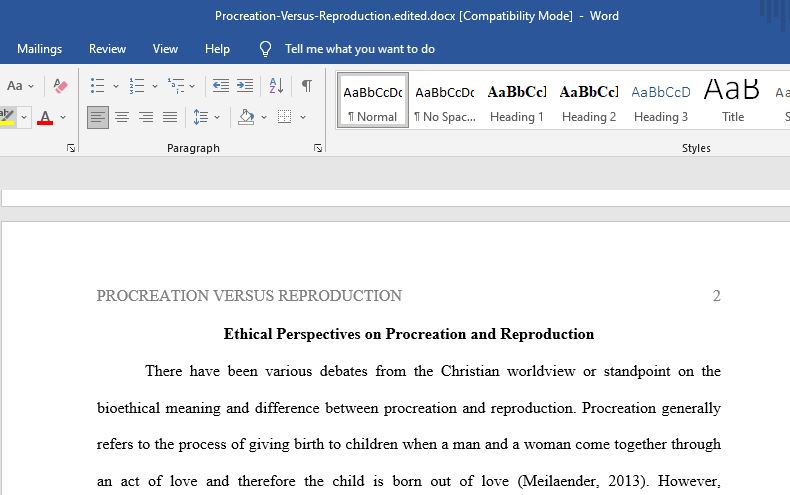Ethical Perspectives on Procreation and Reproduction
Please respond with a paragraph to the following post, add citations and references.
The definition of procreation (to beget or generate offspring). Meilaender defined it as a child produced through “the power of their mutual love has given rise to another who, though different from them and equal in dignity to them, manifests in his person the love that unites them. Their love giving has been life giving; it is truly procreation” (Meilaender, 2013). There are obvious problems in the religious and scientific worlds regarding procreation and reproduction. There are many forms of reproduction that include a child produced outside of the standard procreation. These include, IVF, surrogacy, and egg donation. Meilaender did not believe in these other methods to have children and believed it was a question of morality. “By God’s grace the child is a gift who springs from the giving and receiving of love. Marriage and parenthood are connected” held together in a basic form of humanity.” (Meilander, 2013).
There is a clear distinction between procreation and reproduction since procreation is the sexual unification of a man and a woman that can lead to begetting of children. However, reproduction can occur in several ways that include many methods of assisted reproduction to produce children.
My family has been personally impacted by infertility and were devasted when they were told they cannot have children naturally. When children are conceived from infertility treatments I don’t think of them as any different as Meilaender would describe them. I do not think that God judges us on how we conceive children. I think this is very contradictory, since it stated in the beginning of the book that a human being is the right of all individuals, no matter what their state of being.
Reference
Meilaender, G. (2013). Bioethics: A primer for Christians (3rd ed.). Grand Rapids, MI:ISBN 978-0-8028-6770-4: William B. Eerdmans Publishing Company.
Answer preview:
Word: 400

